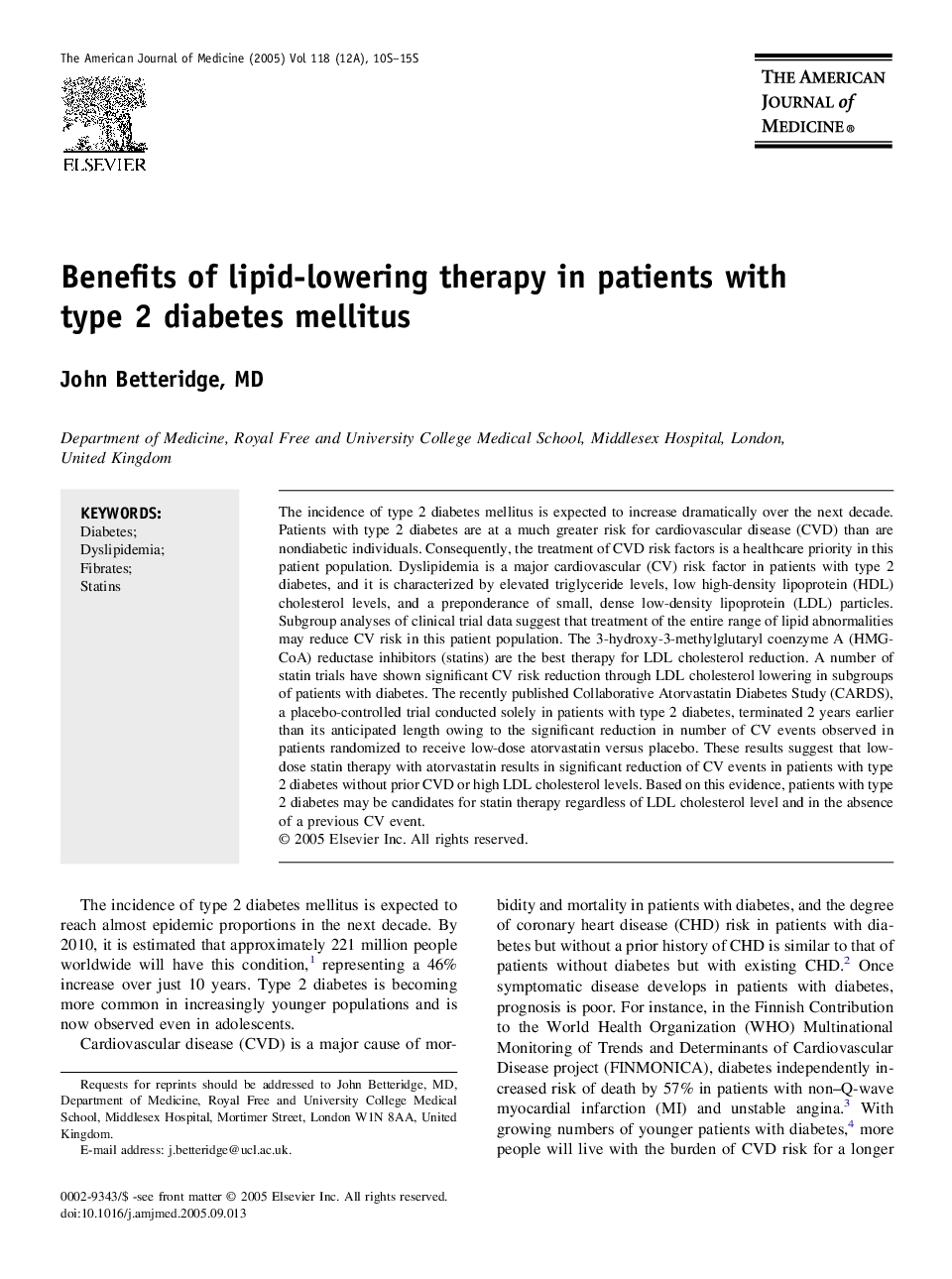| Article ID | Journal | Published Year | Pages | File Type |
|---|---|---|---|---|
| 9929238 | The American Journal of Medicine | 2005 | 6 Pages |
Abstract
The incidence of type 2 diabetes mellitus is expected to increase dramatically over the next decade. Patients with type 2 diabetes are at a much greater risk for cardiovascular disease (CVD) than are nondiabetic individuals. Consequently, the treatment of CVD risk factors is a healthcare priority in this patient population. Dyslipidemia is a major cardiovascular (CV) risk factor in patients with type 2 diabetes, and it is characterized by elevated triglyceride levels, low high-density lipoprotein (HDL) cholesterol levels, and a preponderance of small, dense low-density lipoprotein (LDL) particles. Subgroup analyses of clinical trial data suggest that treatment of the entire range of lipid abnormalities may reduce CV risk in this patient population. The 3-hydroxy-3-methylglutaryl coenzyme A (HMG-CoA) reductase inhibitors (statins) are the best therapy for LDL cholesterol reduction. A number of statin trials have shown significant CV risk reduction through LDL cholesterol lowering in subgroups of patients with diabetes. The recently published Collaborative Atorvastatin Diabetes Study (CARDS), a placebo-controlled trial conducted solely in patients with type 2 diabetes, terminated 2 years earlier than its anticipated length owing to the significant reduction in number of CV events observed in patients randomized to receive low-dose atorvastatin versus placebo. These results suggest that low-dose statin therapy with atorvastatin results in significant reduction of CV events in patients with type 2 diabetes without prior CVD or high LDL cholesterol levels. Based on this evidence, patients with type 2 diabetes may be candidates for statin therapy regardless of LDL cholesterol level and in the absence of a previous CV event.
Keywords
Related Topics
Health Sciences
Medicine and Dentistry
Medicine and Dentistry (General)
Authors
John MD,
